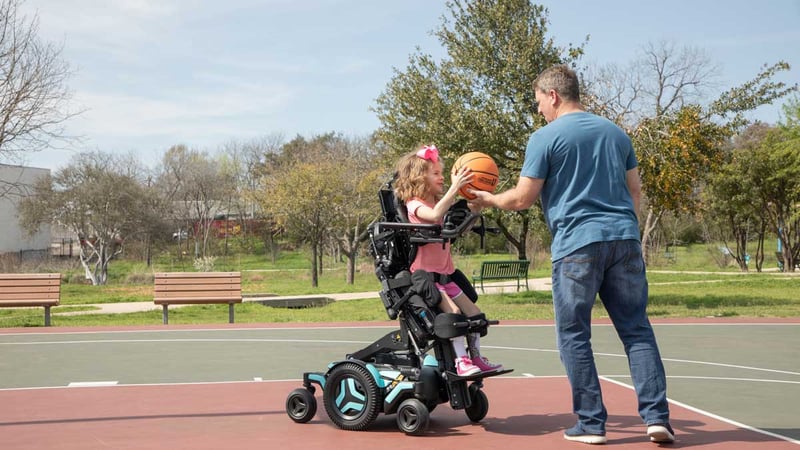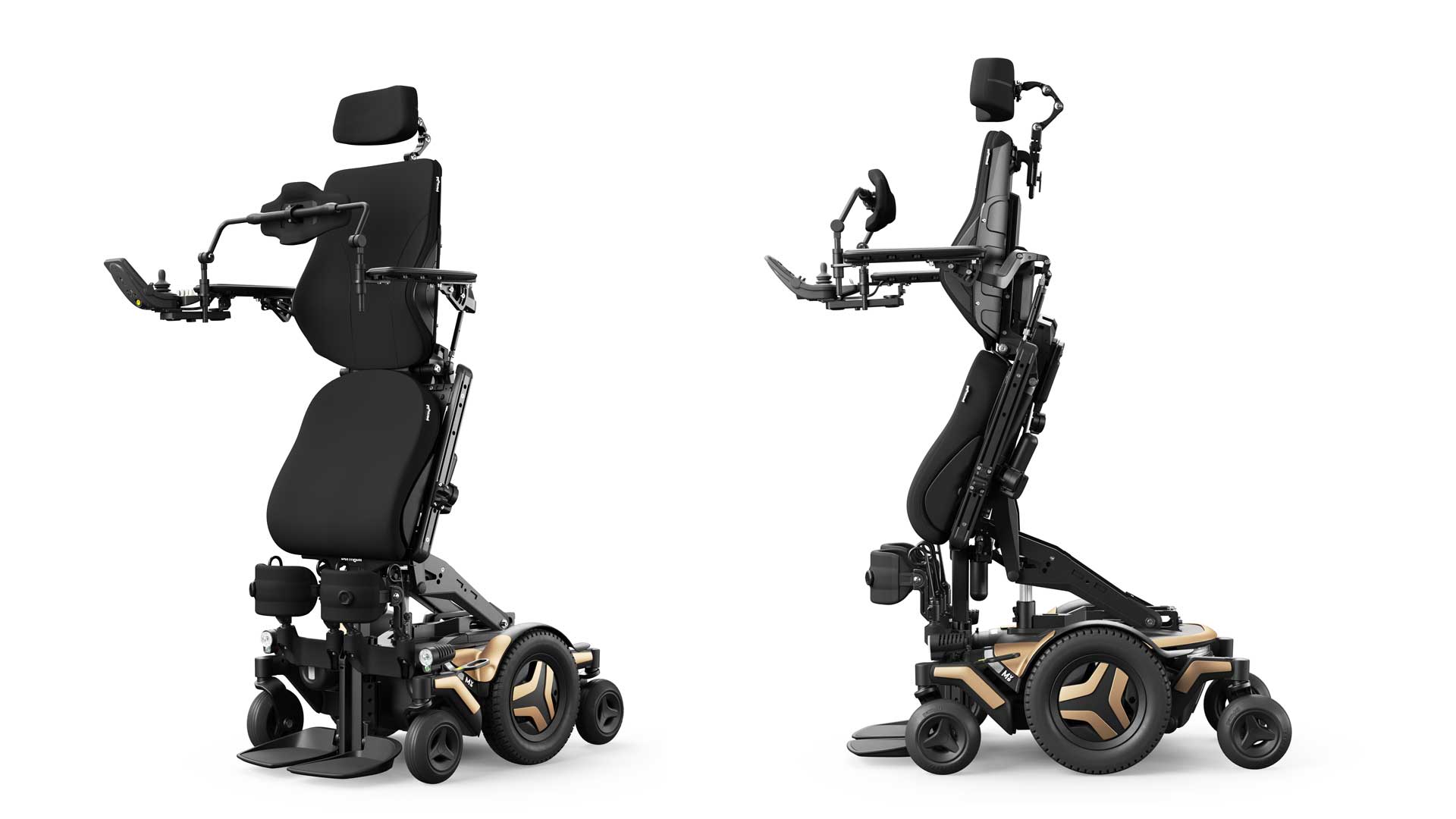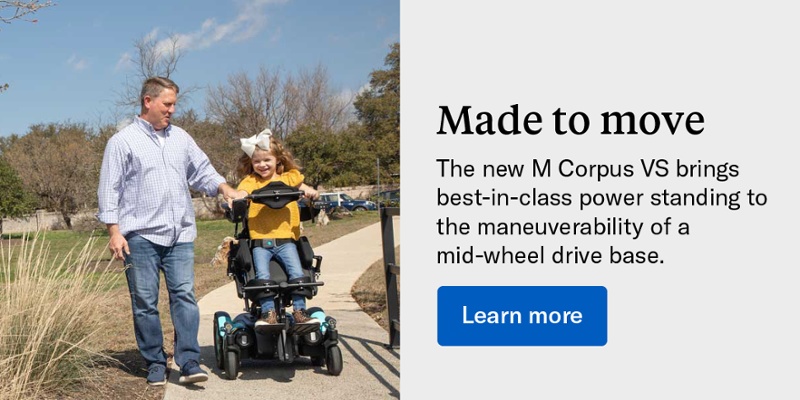In recent years, power standing mobility has gained popularity among those seeking the medical and functional benefits of standing. However, many encounter obstacles such as insurance coverage, hearing comments like “standing is difficult to get covered” or “insurance doesn’t pay for standing”. So, what options are available for obtaining a powered mobility device that meets this need?
Thanks to advancements in technology, power standing options can now be integrated into wheelchair bases that are recognized by a wider range of funding sources, including Medicare. As a result, the majority of the wheelchair and seating components, such as cushions, backrests, and power seat functions like tilt, recline, and elevating leg rests, can often be covered by primary insurance. This leaves the standing and seat elevate options open for consideration by secondary insurance, alternative funding, or private pay options. Some states have even begun providing coverage for power standing and its necessary components through their Medicaid programs.

If insurance coverage falls short of covering the full cost of a power standing wheelchair, alternative funding options may be available to help cover the remaining costs. Privately paying is typically an option, but for some, this may not be financially feasible. Fortunately, there are other sources of alternative funding, such as fundraising platforms like Go Fund Me, financing options like Care Credit, and even foundations dedicated to specific diagnoses like ALS, Team Gleason, and the MS Society. Additionally, manufacturer foundations like the Permobil Foundation may offer assistance in obtaining funding for power standing devices.
Working with an evaluation team that specializes in power standing can be incredibly helpful in navigating the process. These teams are well-versed in the language, paperwork, and steps necessary to secure funding for power standing devices. However, in cases where this option is not available, it's important to advocate for yourself and your needs with your insurance provider. By being proactive and persistent, you may be able to secure the coverage you need to obtain the mobility device that best suits your individual needs.
Have specific questions on insurance funding or coverage? Click here to find your local clinical education manager.

Ashley Detterbeck DPT, ATP, SMS
Clinical Education Manager
Ashley Detterbeck DPT, ATP, SMS received her Doctorate in Physical Therapy from the University of Minnesota in December 2006. She currently holds certification with RESNA as an Assistive Technology Provider and Seating and Mobility Provider. Detterbeck joined Permobil in 2017 as a Clinical Education Manager covering the Upper Midwest. Prior to joining Permobil, she spent 13 years with the Marshfield Clinic in Marshfield WI, where she ran the Seating and Mobility Clinic, participated in adult and pediatric gait based research, provided ongoing neurological care to both adults and pediatrics. With Permobil, Detterbeck is currently presenting educational programs to therapists and DME suppliers regarding seating, wheeled mobility, and pressure ulcer prevention.

